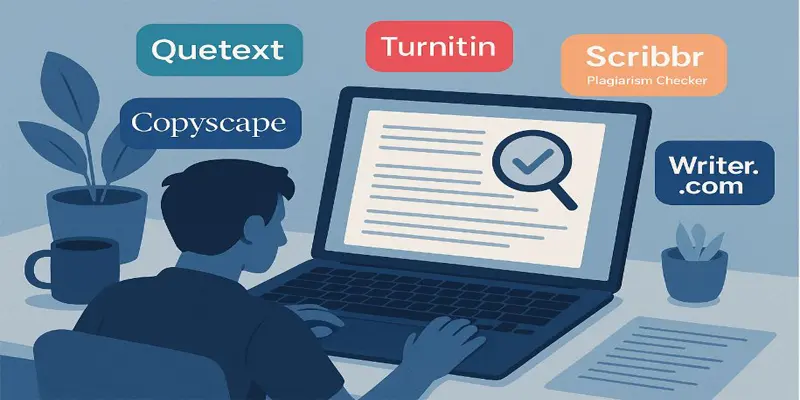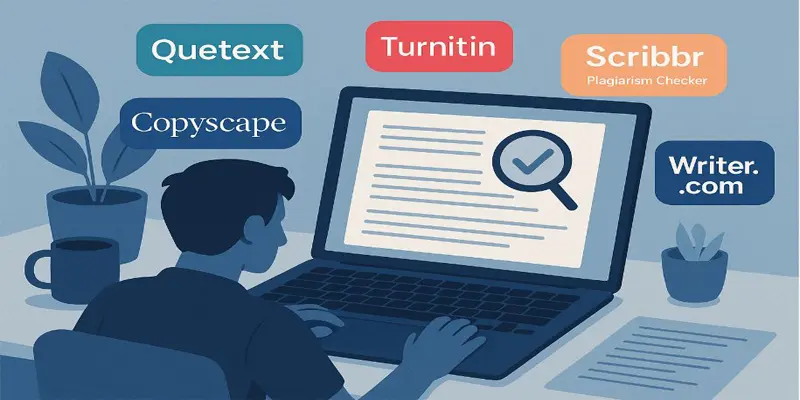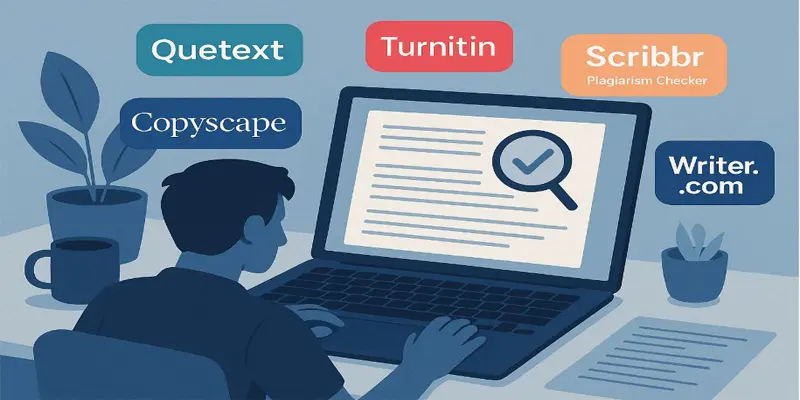Introduction: The Search for Visibility — A Tale Every Brand Faces
Every marketer knows that gut-wrenching feeling — when traffic tanks and you have no idea why. Maya, a lifestyle blogger from Manchester, UK, had just finished celebrating a small SEO win when her blog’s top-ranking post dropped off page one overnight. Panic set in as she realized the importance of accurate SERP data.
It wasn’t her content, but rather the strategic use of Google Search Console that made the difference. It wasn’t her effort. The landscape had shifted, and she didn’t even know it until her rank tracker highlighted the changes in the search engine results pages. In a world where Google changes the rules without notice, Maya realised she needed more than good content — she needed clarity from her rank tracking tools. That’s when she discovered the power of AI SERP tracking tools.
That gut-punch moment? It’s familiar to every marketer, blogger, and SEO lead. In today’s ever-shifting digital world, AI SERP tracking tools are no longer optional. They’re your eyes, your compass, and sometimes—your lifeline. These tools don’t just show where you rank; they explain why those ranks change and what you can do about it. And for Maya, they became the difference between burnout and breakthrough, with the help of SEO experts.
When Rankings Shift Overnight — The Anxiety Behind the Numbers
Maya’s blog went from top five to page two overnight. She wasn’t alone—others in her niche were reporting the same drop. She tried everything: manual searches, spreadsheets, comparing mobile and desktop. Still no answers.
It felt like freefall. Her confidence took a hit, and she started doubting her content. But deep down, she knew it wasn’t just her—it was the system. The algorithm had moved. And that’s when Maya started looking for tools like a free SERP checker that could show her what really happened.
The Story of Maya — A Blogger Who Lost Her Top Spot
Maya’s drop in rankings felt personal, but it was part of a pattern. Google’s updates often hit niches in waves, impacting the search engine results pages significantly. Her keyword, "cruelty-free skincare," had been stable for months — until it wasn't. This was Maya’s first big SEO shakeup, and it hit hard, impacting her search engine visibility. She wasn’t just losing traffic; she was losing brand deals, income, and visibility in the competitive Google search landscape. What hurt most was the lack of answers, especially regarding her local SERP performance. Traditional tools gave delayed data, unlike modern solutions that offer real-time keyword research. Manual checks showed different rankings based on device and location. Maya needed a tool that gave her real-time SERP insights — not just historical charts.
How Google's Algorithms Rewrite Success Without Warning
Google’s algorithms change constantly, and they rarely give clear explanations. Updates affect different industries in different ways. What worked last month might tank today in the ever-changing search engine landscape. Without context, ranking changes feel random. Maya realized that surviving in search wasn’t about chasing one top spot — it was about understanding how the whole page evolves. Featured snippets, video results, People Also Ask boxes — these SERP features were now stealing clicks from her Google ranking efforts. She needed tools that showed the full landscape.
Why Manual SERP Checks No Longer Work
Maya had been checking rankings manually — Googling her own keywords in incognito, jotting results in a spreadsheet. But she noticed huge inconsistencies in the SERPs that needed addressing. What she saw at 9 a.m. didn’t match what she saw at 3 p.m. Sometimes her blog appeared on mobile but not desktop, which she tracked using Google Search Console. Her notes weren’t enough without the support of a rank checker for accurate insights. She needed clarity, not chaos. That’s when she decided to explore AI-powered SERP tools like Mangools.
Meet the AI Heroes of SERP Monitoring
Maya didn’t plan to dive into AI. She just wanted to understand what was happening to her rankings. What she found were tools that did more than just track—they explained.
SERPWoo showed volatility spikes. Nozzle helped her track brand presence across platforms. Advanced Web Ranking alerted her when her competition changed tactics. With each tool, the confusion lifted. Maya began to anticipate changes instead of react to them.
SERPWoo – The Pulse Checker of Search Volatility
SERPWoo was Maya’s first breakthrough. The interface looked overwhelming at first, but once she found the volatility tracker, everything clicked, and she could utilize a free trial. It showed her how stable — or unstable — a SERP was across days. For keywords like "vegan eye cream," SERPWoo revealed huge fluctuations in the SERPs. That told Maya the problem wasn’t her — the entire niche was being shaken by a Google update, which affected her search engine ranking position. It also let her track her top competitors, highlighting which sites gained or lost ground. These weren’t just rankings; they were vital indicators of her search results performance. They were movements, trends, and warnings, all tracked through position tracking tools. With daily SERP snapshots from the best SERP tracking tools, Maya could finally see the terrain she was trying to navigate.
Nozzle.io – A Deep-Dive Into Brand Visibility
Next, Maya tried Nozzle.io. This tool offered more than keyword rankings — it offered brand presence. Nozzle showed how often her brand appeared across different devices, locations, and even in image or video results. The AI also grouped keywords by search intent, helping her understand why people searched — not just what they searched for. Maya noticed she ranked well for informational queries but lagged on transactional ones. That insight alone shifted her content strategy, aligning it more closely with effective backlink strategies. She started creating product roundups and buying guides to match user intent.
Advanced Web Ranking AI – Data That Tells a Bigger Story, especially when compared to tools like Semrush.
Maya’s final tool was Advanced Web Ranking. The AI features here made her feel like she had a co-pilot. It alerted her when a featured snippet changed hands, impacting her SERP position. It benchmarked her site against competitors and recommended schema markup improvements. One alert led her to rewrite a meta description and reclaim a lost spot in just a week. The real magic? It turned SEO from guesswork into strategy, fueled by real-time ranking data. Instead of chasing every dip, Maya started planning around data — clean, current, and contextual.

How These Tools Turn Data into Decisions
Knowing where you rank is one thing—knowing what to do about it with a Google ranking check is another. Maya used to rewrite content based on gut instinct. Now, she makes changes backed by data.
From alerts to benchmarks, AI tools told her when to act and when to wait. They turned chaos into strategy by leveraging tools like the free SERP check. Her SEO process became smoother, more efficient, and far less stressful.
From Gut Feeling to Actionable Strategy
Before AI tools, Maya operated on gut instinct. A traffic drop meant panic, prompting her to reassess her rank tracker tool usage. A ranking loss meant endless rewriting and constant adjustments in her rank tracking using advanced tracker tools. But now? She waits for the data. She watches the volatility index, checks intent groupings, and studies her competitors. If a drop aligns with a Google update, she knows it’s not personal. If a competitor gained ground, she studies what they changed in their keyword position. Her strategy is no longer emotional — it’s intentional, focusing on improving her Google search visibility.
Alerts, Benchmarks, and the Gift of Time
One of the biggest wins? Alerts. SERPWoo’s volatility alerts gave Maya early warnings, much like the daily rank updates from serprobot.com. Nozzle’s visibility reports showed mobile versus desktop trends. Advanced Web Ranking’s benchmarks showed how her site stacked up. She wasn’t flying blind anymore, thanks to the insights provided by SERPWatcher. She had time to prepare. Time to adjust her approach using on-demand tracker tools for better SERP analysis. Time to win.
What Brands Can Learn From Competitor Movements
Maya learned more from competitors than she ever expected, especially about their SEO rank strategies. She saw when rivals added schema, updated headlines, or shifted content types, as suggested by the ranking data from Accuranker. Instead of copying, she adapted. AI showed her the patterns, similar to the analytics provided by Google Data. The why Behind the scenes, she utilized a rank tracker tool to monitor her progress. what. And that gave her an edge — not just to recover, but to lead.
Choosing the Right AI SERP Tool for Your Journey
Not every tool is built for every business, especially when it comes to accurate SERP analysis. Maya learned to focus on what fit her goals, not what looked flashy in the search results. For solo bloggers, ease of use matters, which is why a serp checker tool can be invaluable. For agencies, reporting is key. For enterprises, it’s about scale and integration.
The right tool makes things easier, not more complicated. Maya’s advice? Utilize position tracking for more accurate insights. Start small, test smart, and always prioritize visibility with the help of tools like Ahrefs.
Freelancers vs Agencies vs Enterprises — Who Needs What?
· Freelancers: Look for affordable, visual tools with AI alerts. Nozzle.io and SERPWoo offer low-friction entry points.
· Agencies: Prioritize white-labeled reports, multi-project views, and collaboration tools. Advanced Web Ranking fits well.
· Enterprises: Focus on integrations, scale, and custom tracking. API access, tag-based grouping, and cross-device data are must-haves.
Cost, Features, and the One Metric That Matters Most in Google ranking checks, including insights from SEO experts.
Maya learned that cost wasn’t just dollars — it was time, effort, and missed opportunities. The key metric? Visibility. Not just rankings, but how often your brand appears across platforms, devices, and SERP features. Choose a tool that helps you track that — accurately, consistently, and clearly.
Maya’s SEO journey didn’t end with one tool — it began there. Before AI, she felt lost, always one step behind in the search engine ranking position compared to her competitors on Bing. But with smart SERP tracking and a reliable rank tracker, she gained confidence, strategy, and control.
Seeing clearly meant planning wisely with the help of her SERP tracker. It meant fewer surprises and more wins, thanks to consistent keyword research. And in a world where rankings can shift without notice, that visibility is everything. Maya didn’t just get her traffic back — she found her power.
By embracing AI SERP tracking tools, she moved from feeling helpless to feeling prepared. She turned reactive scrambles into strategic adjustments with the help of the best SERP tracking tools. She stopped asking, “Why did this happen to me?” and started asking, “What can I do next?”
The tools didn’t do the work for her—but they gave her the insight to work smarter, similar to how Semrush can enhance strategies. In today’s fast-paced search landscape, that clarity is everything. Because when you can see the shifts, you can surf the waves instead of sinking beneath them.
SERP Tracking Isn’t Just Numbers — It’s the Story of Your Brand
Every ranking tells a story. Every shift is a signal that can be tracked using advanced tracking software. Maya learned to read those signals, understand the story, and rewrite her strategy. SERP tracking isn’t a chore — it’s a mirror. It shows you how Google sees your site and its SERP position. And once you can see clearly, you can grow intentionally.
Use AI Tools Not Just to Monitor, But to Adapt and Thrive
Monitoring is step one. Adapting is where the magic happens. Maya didn’t just survive a ranking drop — she built a smarter system using insights from serprobot. A stack of data from her rank tracker provided insights she needed. A strategy. And most importantly, a mindset focused on leveraging data from tools like Accuranker. One built on clarity, powered by AI, and guided by purpose, similar to the best SEO agencies.
Rank Tracking Software for SEOs & Full SERP Visual
Rank tracking software helps SEOs monitor keyword positions in search engines with precise SERP tracking. Instead of just showing ranks, it acts as a serp position monitor and provides a full SERP visual, revealing competitors, SERP features, and changes over time. A good seo rank tracker delivers daily or on-demand updates, helping you react quickly to ranking shifts. With a search performance tracker, you can see which keywords are improving, which are dropping, and where to focus your SEO efforts. Full SERP visuals give you a strategic edge by showing real search layouts, helping you target the right features and optimize content effectively.
How to Track a SERP Position Effectively
Tracking a SERP position is essential for understanding your website’s visibility in search results. Using a reliable SEO rank tracker or SERP tracking tool, you can monitor keyword performance, analyze ranking trends, and spot fluctuations in your search position. Start by selecting target keywords, then use tools like Ahrefs, SEMrush, or Nozzle to get accurate ranking data across devices and locations. Regular tracking helps identify opportunities, measure SEO progress, and respond quickly to changes in ranking position. For deeper insights, choose a search performance tracker that also shows competitor rankings and SERP features, ensuring your strategy stays ahead in 2025’s competitive landscape.
Looking for Web Development, Web Applications, or SEO Content Writing services?
We at Zenoitech provide high-quality, affordable, and reliable solutions tailored to your business needs.
✨ What we offer:
✔ Stunning and responsive websites
✔ Custom web applications
✔ SEO-optimized content to rank higher
✔ Affordable packages & free consultation
🚀 Let’s grow your business together


